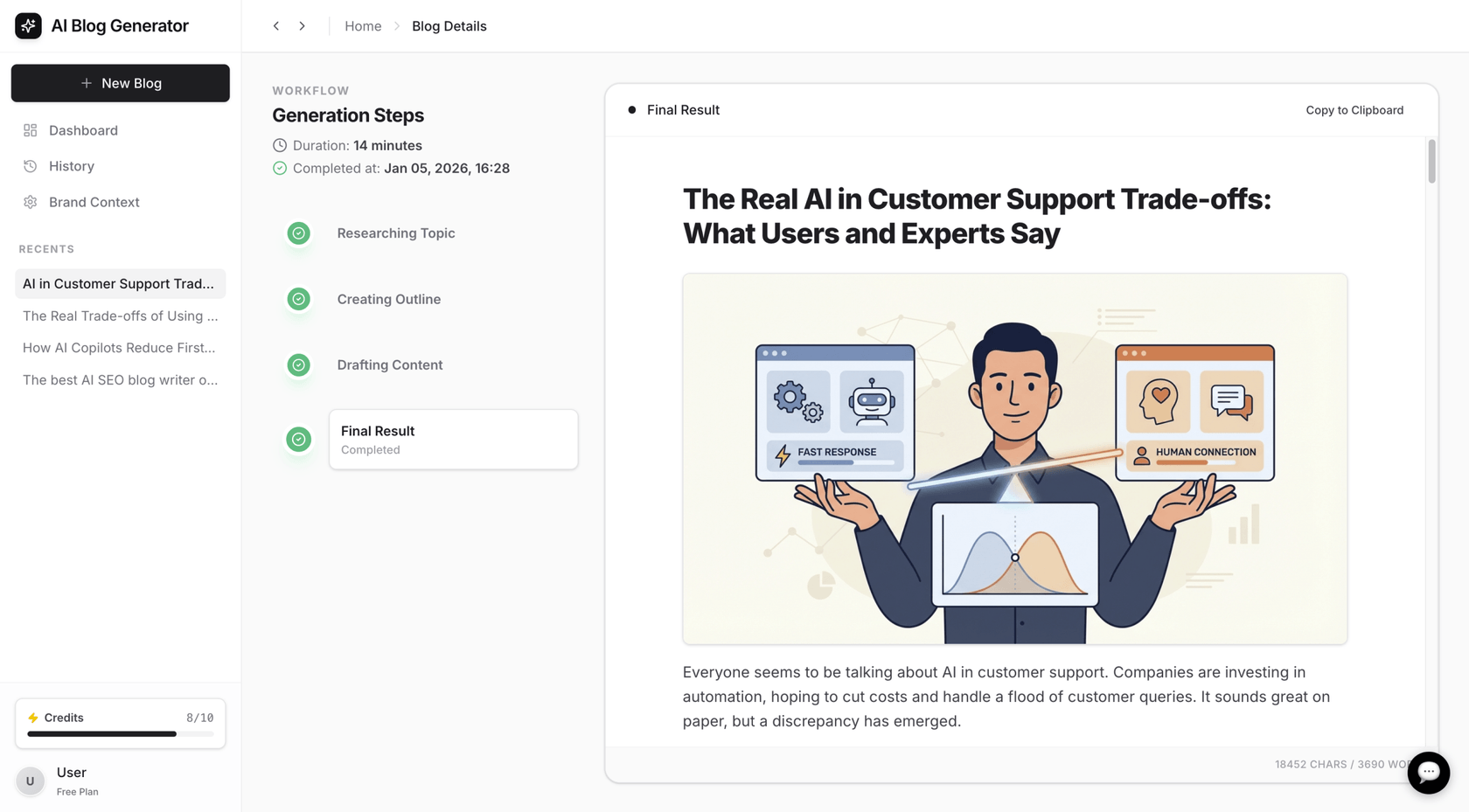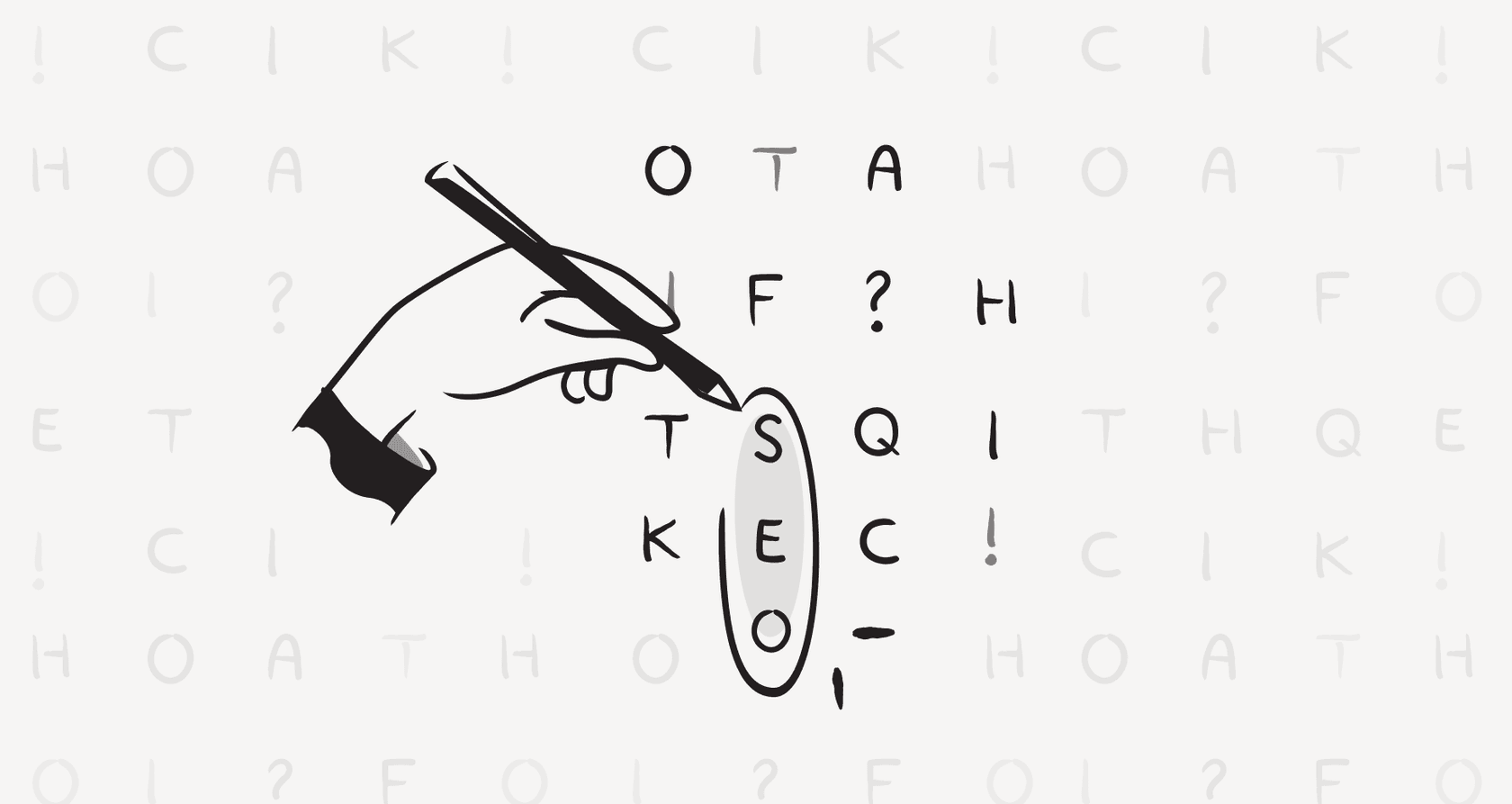I tested dozens of AI marketing tools: Here are the 6 best for 2026

Stevia Putri

Stanley Nicholas
Last edited January 16, 2026
Expert Verified

The AI marketing space is expanding rapidly, with new tools emerging frequently. For marketers, navigating this landscape to find effective solutions can be challenging.
To help, we have evaluated several platforms to identify a selection of useful tools. This post offers a curated collection of AI marketing tools that performed well in our tests for a variety of use cases.
We focused on tools for tasks ranging from creating SEO-optimized content to enhancing social media presence. These tools can function as assistants that handle repetitive tasks, freeing up marketing teams to focus on strategy and creativity.
What are AI marketing tools?
AI marketing tools are software applications that use artificial intelligence to make marketing tasks easier, faster, and more effective.
They generally fall into two main categories, as this infographic shows:
-
Generative AI: This type of AI creates new content, such as blog posts, social media captions, images, and code. It can serve as a tool for brainstorming and content creation.
-
Predictive AI: This type of AI analyzes large datasets to forecast future outcomes. It can help identify which leads are most likely to convert or predict which content will resonate with an audience.
Whether analyzing customer data, automating content creation, or optimizing campaigns, the primary goal of these tools is to improve marketing efficiency and free up teams from repetitive work.
How we selected the top AI marketing tools
Our selection process was based on a hands-on evaluation of numerous platforms. We focused on tools that are effective and user-friendly, without requiring extensive technical expertise.
Here is the checklist we used for our evaluation:
-
Effectiveness: Does the tool deliver on its promised functionality with tangible results?
-
Ease of use: Is the platform intuitive and easy to navigate for new users?
-
Specific use case: Does the tool excel at solving a specific marketing problem?
-
Integration: Can the tool integrate smoothly with other common marketing software?
-
Value for money: Is the pricing appropriate for the features offered?
Comparison of top AI marketing tools
| Tool | Best For | Starting Price (Billed Annually) |
|---|---|---|
| eesel AI blog writer | Generating publish-ready SEO blog posts | $99/month for 100 blogs |
| Jasper | AI copywriting and first drafts | $59/user/month |
| HubSpot | All-in-one marketing and sales CRM | Free tools available |
| Surfer SEO | SEO content optimization | $79/month |
| Brandwatch | Social media listening and consumer intelligence | Contact for pricing |
| Lumen5 | Turning text into videos | $19/month |
6 leading AI marketing tools for 2026
After all the testing, these are the six tools that earned a permanent spot in our workflow.
1. eesel AI blog writer
The eesel AI blog writer is a tool designed to help scale organic traffic by generating SEO-focused content. Its primary function is to turn a single keyword into a structured blog post. It was developed to address challenges in content scaling and has been used to significantly grow organic traffic.

Users enter a keyword and provide a website for context, and the tool generates a structured article with headings, AI-generated images, internal links, and external citations. A notable feature is its ability to find and embed relevant Reddit quotes for social proof.
-
Pros: It produces researched content intended to match search intent with a natural writing style. The tool is optimized for AEO (Answer Engine Optimization) to help content appear in Google’s AI Overviews. Its context-aware research feature automatically pulls in relevant data for different post types.
-
Cons: The tool is specialized for long-form blog content and is not designed for creating short-form copy like social media captions or ad headlines.
-
Pricing:
- You can generate your first blog completely free to see the quality for yourself.
- The Early Bird plan costs $99 per month for 100 blog generations.
2. Jasper
Jasper is one of the originals in the AI writing space, and it’s still a fantastic tool for generating a wide variety of marketing copy. Think of it as a versatile assistant that can help you bust through writer's block for everything from ad copy and emails to product descriptions and landing pages.
Its strength is its huge library of templates, which are designed for specific marketing tasks. You pick a template, give it a little context, and it generates multiple options for you to work with. Features like its "Brand IQ" help it learn your company’s voice and style, which is great for keeping your copy consistent across different channels. It also integrates with other marketing tools like Surfer SEO, making it a solid part of a larger content workflow.
-
Pros: Jasper is incredibly versatile and fast. It’s a lifesaver when you’re staring at a blank page and need ideas, fast. The Brand IQ feature is a nice touch for maintaining consistency.
-
Cons: The output serves as a strong first draft and can be refined with human editing for brand-specific voice and style. Careful guidance can help avoid repetition.
-
Pricing:
- Pro Plan: Starts at $59/user/month when billed annually.
- Business Plan: Custom pricing for teams.
3. HubSpot
You probably know HubSpot as a giant in the CRM world, but it has also been weaving powerful AI features, collectively called Breeze, into its entire platform. It’s a world-class, complete ecosystem for managing your entire customer journey, from marketing and sales to customer service.
HubSpot’s AI tools are spread across its Marketing Hub, Sales Hub, and Service Hub. This includes things like the Breeze Prospecting Agent that helps sales teams find and reach out to leads, predictive lead scoring to identify your hottest prospects, and AI assistants to help generate blog ideas and social posts right within the platform.
-
Pros: The biggest win here is having a single source of truth. HubSpot's AI leverages all your customer data in one place, which allows for incredibly personalized and effective campaigns. Because it is a mature and reliable platform, you can trust it to power your growth at any scale.
-
Cons: HubSpot offers such a wide range of powerful, professional-grade features that new users may want to take advantage of HubSpot Academy's excellent training to master the platform. It offers tiered plans to ensure companies of all sizes can find a solution that matches their needs.
-
Pricing:
- HubSpot offers a great suite of free CRM tools to get started.
- Paid plans scale to meet enterprise needs. The Marketing Hub Professional plan, for instance, starts at $800/month.
4. Surfer SEO
While other tools help you write content, Surfer SEO is all about making sure that content actually gets seen on Google. It’s a dedicated content optimization tool that analyzes the top-ranking pages for your target keyword and gives you a data-driven roadmap to beat them.
It works by giving you a real-time Content Score as you write in its editor. It tells you which keywords to include, how long your article should be, what your heading structure should look like, and more. It takes the guesswork out of on-page SEO. Surfer also has its own AI that can generate ready-to-rank articles based on its own guidelines, and features like Auto-Optimize and internal linking can save you a ton of time.
-
Pros: The Content Score is brilliant for making SEO accessible to everyone on the team, not just the experts. It’s effective at ensuring your content is comprehensive and hits all the right notes for search engines.
-
Cons: Surfer is laser-focused on on-page optimization. It won’t help you with other critical parts of SEO, like building backlinks or fixing technical site issues. Its AI writing feature also costs extra credits, which can add up.
-
Pricing:
- Essential Plan: Starts at $79/month when billed annually.
5. Brandwatch
If you need to know what people are saying about your brand, your competitors, or your industry online, Brandwatch is the top dog. It’s an enterprise-level social listening platform that uses AI to analyze millions of conversations across social media, blogs, forums, and news sites.
Brandwatch gives you access to a mind-boggling amount of data, including a historical archive of 1.7 trillion conversations. Its AI assistant, Iris, helps you sift through all that noise to find meaningful insights. You can track brand sentiment, spot emerging trends before they take off, identify key influencers, and manage your brand's reputation in real time.
-
Pros: The depth and breadth of the data are unmatched. Brandwatch’s AI is excellent at understanding the sentiment and context behind mentions, giving you a truly accurate picture of consumer perception.
-
Cons: It is an enterprise-grade tool with corresponding pricing, which may not be suitable for most small to medium-sized businesses. The volume of data may require a dedicated analyst to extract maximum value.
-
Pricing:
- Pricing is not public. You have to contact their sales team for a custom quote, which usually signals a high price tag.
6. Lumen5
Video is king on social media, but creating it can be a huge time sink. Lumen5 is an AI-powered video creation tool that solves this problem by making it ridiculously easy to repurpose your written content into engaging videos.
The workflow is simple: paste a link to a blog post, and its AI summarizes the content, pulls out key messages, and automatically pairs them with relevant stock video clips, images, and background music. It basically builds a storyboard for you in seconds. You can then easily edit it using a drag-and-drop interface. It even has an AI Script Composer that can generate a video script from a single idea.
-
Pros: Lumen5 makes video creation accessible to anyone, regardless of their technical skills. You can create a professional-looking social video in minutes, which is a massive win for busy marketing teams.
-
Cons: The tool primarily uses stock assets, which is ideal for creating simple social videos quickly. For more complex, branded projects, original footage may be preferred.
-
Pricing:
- Basic Plan: Starts at $19/month when billed annually.
For more perspectives on the best tools available, this video from Visme offers a great overview of top platforms that can help boost creativity and drive results.
This video breaks down the top 5 AI marketing tools that help with brand development and marketing campaigns.
How to choose the right AI marketing tools
Feeling a bit of decision fatigue? That's normal. Here’s a simple way to think about it so you can pick the right tool without getting lost in the options.
-
Start with your main goal. Don't just grab a tool because it's trending. What's your biggest marketing headache right now? Is it scaling blog content? Improving your ad copy? Understanding your audience? Solve your most pressing problem first.
-
Think about your current workflow. A great tool should feel like a natural extension of how you already work. Look for platforms that integrate with your CRM, CMS, or other marketing software. HubSpot is an excellent foundation for this, as it offers a centralized ecosystem that many other AI tools connect to seamlessly.
-
Check the quality of the output. Almost every tool on this list offers a free trial. Use it. For a writing tool, does the content actually sound like a human wrote it? For an analytics tool, are the insights clear and actionable? Judge the tool on its results, not just its fancy feature list.
-
Match the features to your budget. Don't pay for a massive, enterprise-level suite if you only need one or two features. However, for teams that want everything in one place, HubSpot's tiered plans offer a great way to access advanced features as you grow.
The future of AI marketing: A human-in-the-loop approach
AI marketing tools are now widely available and can automate tasks, generate ideas, and deliver data-driven insights. They can handle processes at a speed and scale that was previously difficult to achieve.
These tools function as powerful assistants, augmenting human strategy, creativity, and empathy rather than replacing them. Platforms like HubSpot have built impressive ecosystems that make it easy to manage these tools in one place. Effective marketing often results from combining AI-driven efficiency with the expertise of a marketing professional who understands the customer and the brand.
Ready to see how AI can write a complete, publish-ready blog post for you in minutes? Try eesel AI blog writer for free and generate your first article today.
Frequently asked questions
For small businesses, the biggest wins are saving time and money. AI marketing tools can automate repetitive tasks like writing blog drafts, scheduling social media, or analyzing data, which frees up your small team to focus on bigger-picture strategy and customer relationships. They also level the playing field, giving you access to powerful insights that were once only available to large corporations.
Not at all. Think of them as very capable assistants, not replacements. While AI is great at handling data, generating content, and automating workflows, it does not replicate human creativity, strategic thinking, and the ability to build real human connections. The best results come from combining AI's efficiency with a marketer's expertise and intuition.
Start by identifying your biggest marketing challenge. Are you struggling to produce content consistently? Is your ad spend not delivering results? Once you know the problem, look for a tool that specializes in solving it. Always take advantage of free trials to see if the tool's output is high quality and if it fits well into your team's existing workflow.
Yes, quite a few! Many powerful platforms offer free tiers or trials. For example, HubSpot has a suite of free CRM and marketing tools, and you can generate your first complete blog post with the eesel AI blog writer for free. These are great ways to test the waters without a financial commitment.
The cost varies wildly. Some tools start at around $20 per month, while comprehensive enterprise platforms can cost thousands. A good approach is to start small with a few affordable, high-impact tools that solve a specific problem. As you see a return on your investment, you can gradually expand your toolkit.
The biggest mistake is expecting the tool to do all the work. AI is not a "set it and forget it" solution. You still need a human to provide the right inputs, review the output, and guide the overall strategy. Treating AI as a partner rather than a magic button is the key to getting real value from it.
Share this post

Article by
Stevia Putri
Stevia Putri is a marketing generalist at eesel AI, where she helps turn powerful AI tools into stories that resonate. She’s driven by curiosity, clarity, and the human side of technology.





